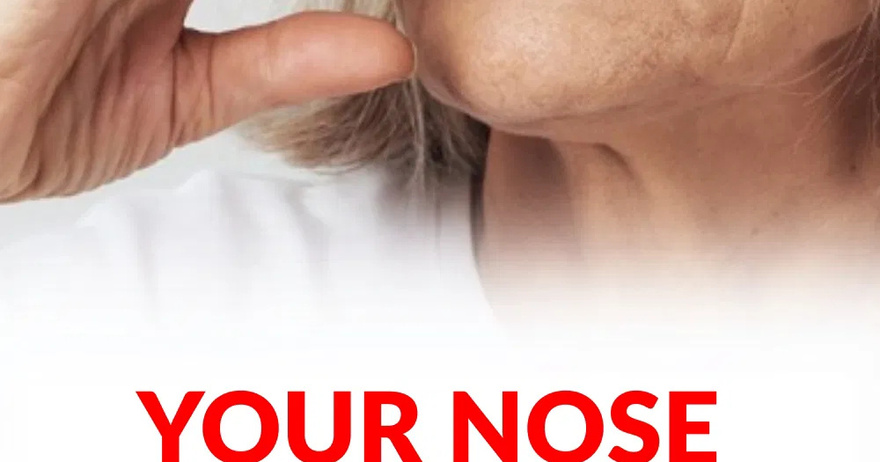Anosmia, the complete inability to identify odors, contrasts with hyposmia, which involves a partial loss of the sense of smell. People with anosmia can still know basic tastes such as salty, sweet, sour, and bitter, but may have difficulty discerning specific flavors.
Surprisingly, the ability to distinguish flavors depends primarily on the sense of smell, rather than the taste receptors on the tongue. Therefore, those who experience smell loss often record a diminished sense of taste and a decreased enjoyment of food.
Typically, people note changes in their sense of smell around age 60, with the most significant changes occurring after age 70.
Causes
The causes of anosmia diversify and can include conditions that lead to inflammation or blockage of the nasal passages, avoiding odors from reaching the olfactory area, or destroy to parts of the olfactory system or the nerves that connect it to the brain.
Head injuries, especially in young adults. Viral infections. Alzheimer’s disease, predominantly in the elderly.
Head injuries often cause permanent loss of smell, as in traffic accidents. These injuries can destroy or sever the olfactory nerve fibers, which transmit signals from the olfactory receptors to the brain. Infections or tumors near the cribriform plate of the nasal cavity, which separates the nasal and brain cavities, can also affect the olfactory nerves.
Respiratory tract infections, particularly influenza
They are another popular cause, possibly responsible for up to a quarter of cases of decreased sense of smell. Degenerative brain diseases, such as Alzheimer’s, can destroy the olfactory nerves, resulting in loss of smell.
Less common reasons include medications, tumors, nasal infections, allergies, sinus infections, and radiation therapy for can.cer, which can temporarily or permanently affect smell or taste.
In extremely rare cases, anosmia can be congenital.
Anosmia, or reduced olfactory sensitivity, may serve as an early indicator of COVID-19, a severe acute respiratory illness caused by the SARS-CoV-2 coronavirus.
Evaluating smell loss involves observing war:ning signs, particularly when resulted by head injuries, nervous system symptoms, or sudden onset of signals that indicate immediate medical evaluation.
Expert Skydiver Catches His Final Words On Film as He Forgot to Put On His Parachute
White House Says It Shuts Out Journalists Who Put Pronouns in Email Signature
A husband, after spending 17 years in marriage with Inna, decided to leave her for a young student, but he did not expect that his wife would give him a farewell
Pilot warned he “needed fuel” before Hudson River helicopter crash
